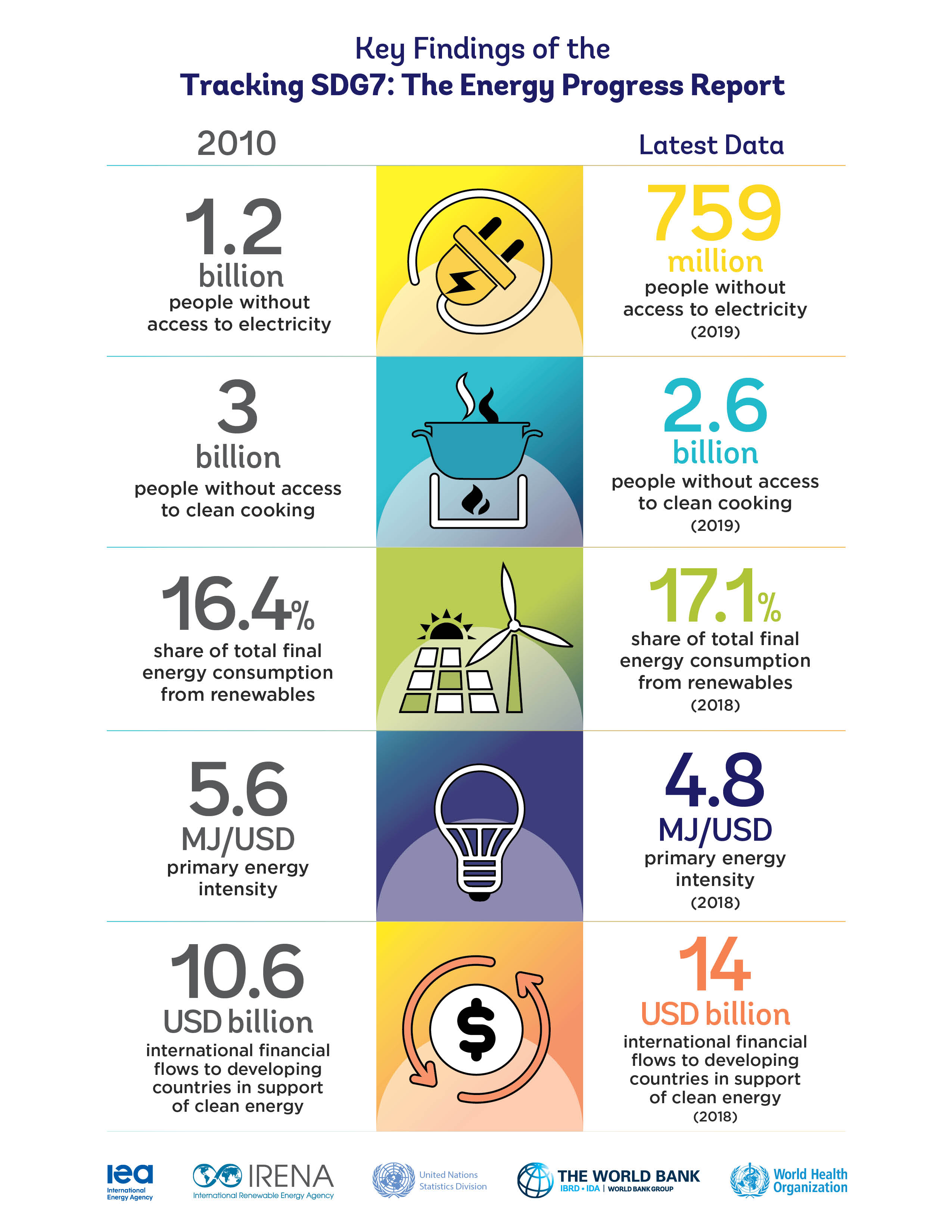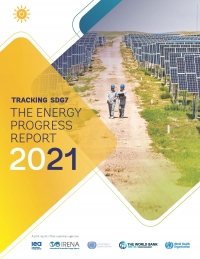IRENA: Tracking SDG 7: The Energy Progress Report (2021) - June 2021 - eng (pdf) Избранное
This joint annual report from the custodian agencies of Sustainable Development Goal (SDG) 7 on energy, serves to guide international co-operation and policy-making to achieve universal, sustainable energy access by 2030.
The annual SDG 7 tracking report includes the official dashboard of global, regional and national progress on four key energy targets:
- 7.1: Ensuring universal access to electricity and clean cooking solutions;
- 7.2: Substantially increasing the share of renewable energy;
- 7.3: Doubling progress on energy efficiency;
- 7.A: Increasing international collaboration in support of clean and renewable energy.
The latest available data and selected energy scenarios reveal that at today’s rate of progress, the world is not on track to achieve any of the targets under SDG 7. This is particularly true of the most vulnerable countries and those that were already lagging.
Although the number of people without access to electricity fell from 1.2 billion globally in 2010 to 759 million in 2019, the unfortunate fact is that gains in energy access are being reversed in the wake of the COVID-19 pandemic. The number of people lacking access to electricity is set to increase in 2020, making basic electricity services unaffordable for up to 30 million people who had previously enjoyed access. The number of people with access to clean cooking solutions dropped from 3 billion in 2010 to 2.6 billion in 2019. Unless efforts are stepped up significantly, an estimated 660 million people would remain without access to electricity in 2030 and 2.4 billion people will be left with no access to clean cooking.
The report examines various ways of bridging the gaps, chief among them the goal of significantly scaling up renewable energy while maximising its socio-economic benefits. During the COVID-19 pandemic, renewables have proven more resilient than other parts of the energy sector, and their short-term outlook shows resilience in all regions, helped along by supportive policies and falling technology costs. The share of renewables in total final energy consumption (TFEC) has however been stable around 17% since 2010, because TFEC has grown at more or less the same rate as renewables. This points to the importance of further scaling up renewable energy while phasing out fossil fuels and containing energy consumption through energy efficiency.
The ability of countries to scale up renewables however varies widely. Enhanced co-operation is vital to support those most in need – especially amid the COVID-19 crisis. The 2021 edition of SDG7 introduces for the first time a full chapter on indicator 7.A.1: international financial flows to developing countries in support of clean energy. The overall trend in public financial flows has been positive over the past decade, increasing threefold during the period 2010-2018 when viewed as a five-year moving average. This trend masks some important distributional discrepancies, with financial commitments concentrated in a few countries and thus failing to reach many of those most in need of international support. The 46 least developed countries (LDCs) received a mere 20% of public financial flows over the period 2010-2018.
Overall, the world is not on track to achieve SDG 7 and considerable efforts are needed in the coming years, in particular to reach those furthest behind.

IRENA produces the report jointly with the International Energy Agency (IEA), the United Nations Statistics Division (UNSD), the World Bank, and the World Health Organization (WHO). The preparatory process for the 2021 edition was chaired by UNSD.
Дополнительная информация
- Серия: Международные организации / IRENA / Tracking SDG 7: The Energy Progress Report
- Год: 2021
- Месяц: 6 (полугодие)
- Источник: IRENA - International Renewable Energy Agency


































